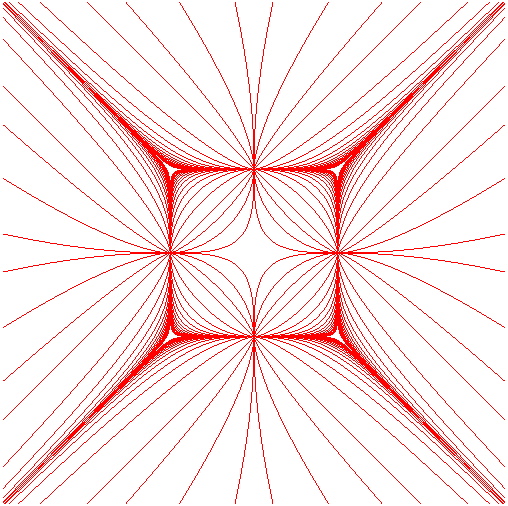
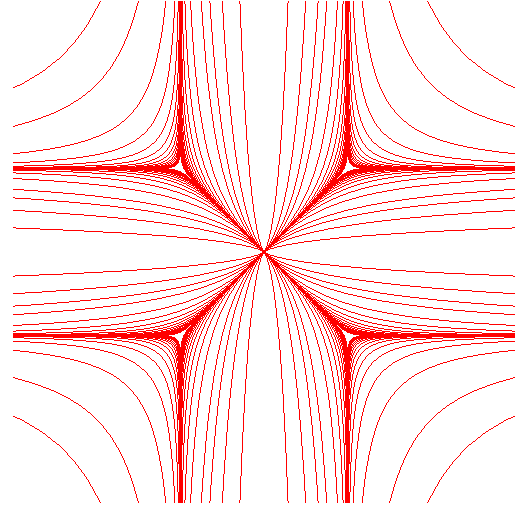
| next curve | previous curve | 2D curves | 3D curves | surfaces | fractals | polyhedra |
LAMÉ CURVE
 |
 |
| Curves studied by Lamé
in 1818.
Gabriel Lamé (1795-1870): French mathematician and engineer. Other names for |
| Cartesian equation of Cartesian parametrization of Area delimited by |
The Lamé curves
and
are
defined by their Cartesian equation above.
For rational values of ,
the curve
,
the part of
located in the
quadrant, is a portion of an algebraic curve
of degree pq ?, and equation

and
coincide);
the same holds for the curves
.
Examples of curves with a = b:
| Lamé curve |
associated algebraic curve |
figure: the Lamé curve in red, the associated algebraic curve in green. | |
| square: |
line: |
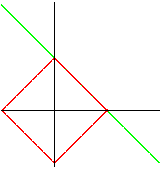 |
|
| circle: |
ditto |
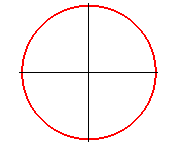 |
|
|
|
Lamé cubic: |
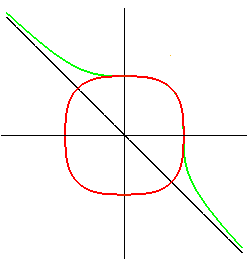 |
|
| union of 4 arcs of parabolas: |
parabola: |
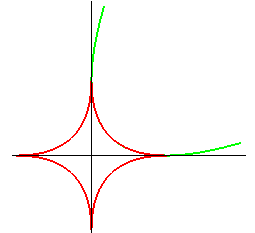 |
|
| astroid: |
ditto |
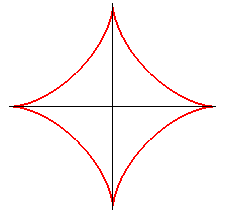 |
|
| union of 4 branches of rectangular hyperbolas: |
rectangular hyperbola: |
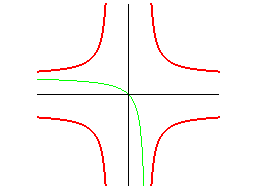 |
|
| crosscurve: |
ditto |
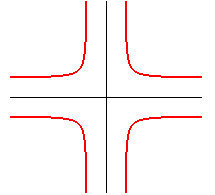 |
| Lamé curve |
associated algebraic curve |
figure: Lamé curve in red, the associated algebraic curve in green. | |
| eight half-lines: |
line: |
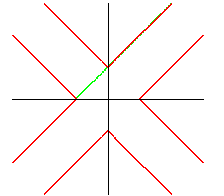 |
|
| rectangular hyperbola: |
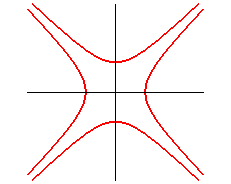 |
||
| union of 8 arcs of parabolas: |
parabola: |
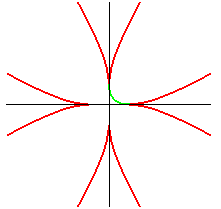 |
|
| ditto; it is the union of two evolutes of hyperbola. |
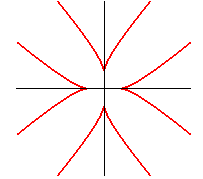 |
||
| union of 8 branches of rectangular hyperbolas: |
rectangular hyperbola: |
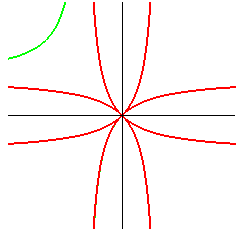 |
|
| bullet nose
curve: |
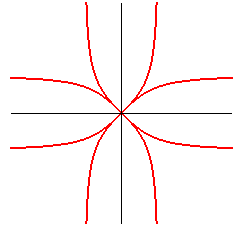 |
When a = b =1 and a
= n is an integer,
is the Fermat curve.
See also the Lamé surfaces.
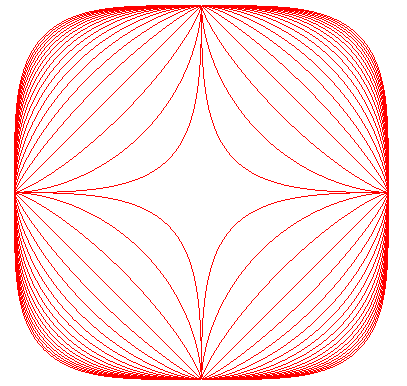
| next curve | previous curve | 2D curves | 3D curves | surfaces | fractals | polyhedra |
© Robert FERRÉOL 2017